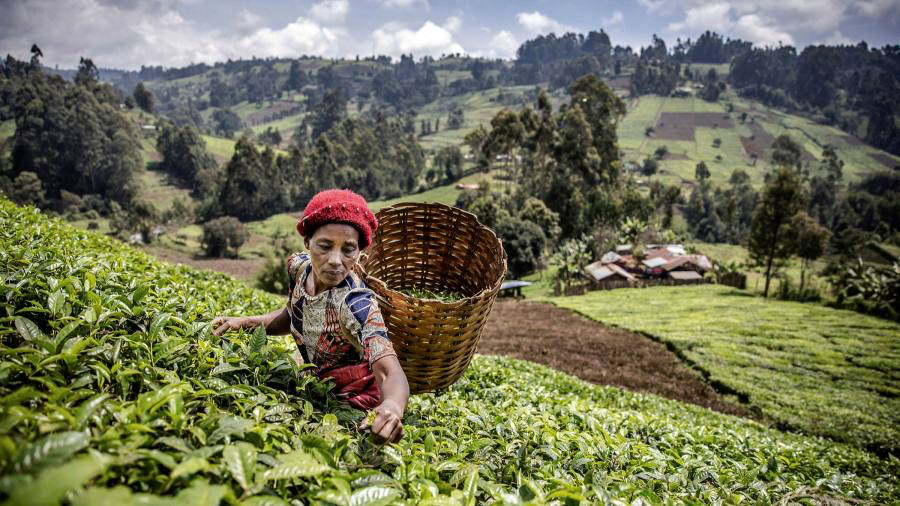
Africa is tired of waiting. For vaccines to protect our people from Covid-19; for investments to alleviate the worst recession of the last 25 years; and to help address the increasingly devastating impacts of climate change.
Tired of waiting, African countries have teamed up to design an African-owned and led plan to respond to Covid-19 and climate emergencies. It’s radically different from anything we’ve tried before. First, because old recipes for economic development have often contributed to climate change. Secondly, because the challenges we face are of such magnitude that they require a totally new approach.
Climate change could wipe out 1
5% of Africa’s gross domestic product by 2030. This means that by the end of the decade there will be another 100 million people in extreme poverty. This is a cruel fate for a continent that contributes so little to global warming.
Our way out is to strengthen our ability to respond and adapt to climate change. That is why the African Union, in collaboration with the Global Center on Adaptation, the African Development Bank and other partners, is approving the Acceleration Program for Adaptation to Africa. The program aims to spend $ 12.5 billion over five years, on top of the $ 12.5 billion already pledged by the African Development Bank, on climate-tightness, the creation of new jobs and the modernization of key economic sectors to support upstream efforts to integrate climate adaptation investments nationwide. We know that $ 25 billion over five years is not enough to fully adapt. But it is a start.
One area that shows great potential is that of digital technologies and services for farmers. Digital connectivity allows real-time access to agricultural advice, market price information and weather forecasts; it is the gateway to digital bank accounts, loan and crop insurance, and more efficient landscape restoration efforts. The African Development Bank has already helped 19 million farmers in 27 countries increase yields by an average of 60 percent through the application of digital technology. Rapidly expand these services and Africa will be able to feed its 2.5 billion people safely and sustainably by 2050. The application of digital technologies could transform Africa’s agriculture and agri-food sectors, which they are currently worth $ 300 billion, in a $ 1 trillion market by 2030.
Video: the make-or-break issues facing the COP26 climate summit
Digital start-ups in agricultural services are also a good vehicle for private sector investment. The returns are high: weather and climate information services are vital to sustainable development and investments in climate services in general have a cost-benefit ratio of 1 to 10. Furthermore, they are a major attraction for young people and a promising new source of employment.
New financial instruments such as green bonds could help support investments in resilient infrastructure. With most of Africa’s infrastructure still to be built, making the continent’s infrastructure resilient only adds an average of 3% to total costs. Yet every dollar spent on infrastructure could yield $ 4 in wider economic benefit. It is simply good math.
Ahead of the COP26 climate summit in Glasgow, some of the richest nations in the world are pledging to deliver on their 2009 commitment to spend $ 100 billion annually to mitigate climate change in developing countries.
We know they have many options, but the African Union urges them to consider before funding our adaptation program. Because it is Africa’s plan, and because its goals are realistic, necessary and achievable. Five billion dollars a year is a small change – the world has spent 20 trillion dollars to fight Covid-19 – but the key is that this start-up capital will help Africa create much more, through new financial instruments and reducing risks to resilience projects to attract private investors. For example, Africa is still catching up on green bond financing, raising less than $ 8 billion out of a global total of $ 539 billion in 2020.
Twenty-five billion dollars over five years is a drop in the ocean compared to the challenges we face. But we believe it is the basis, not a ceiling, for financing the adaptation. To successfully combat climate change, after COP26 there must be a clear plan to deploy the enormous resources needed. The African Union considers the adaptation plan to be central. What it needs are global action and firm resource commitments.
Recall that African ecosystems provide free crucial services to the world. African forests and oceans serve as natural carbon sinks. It is time for Africa to be compensated, for the good of the continent and the planet. We have waited long enough.
The writer is president of the Democratic Republic of Congo and president of the African Union
ft.com
 Africa -China Review Africa -China Cooperation and Transformation
Africa -China Review Africa -China Cooperation and Transformation
